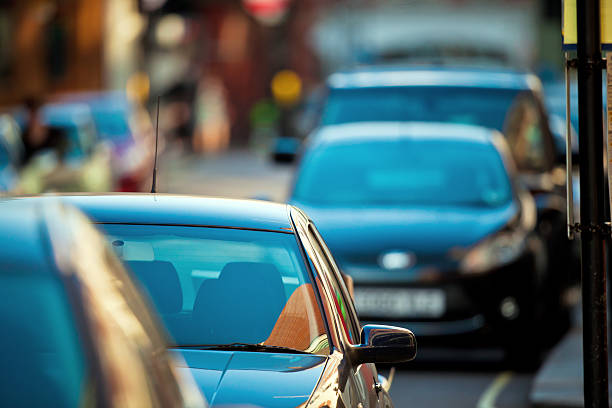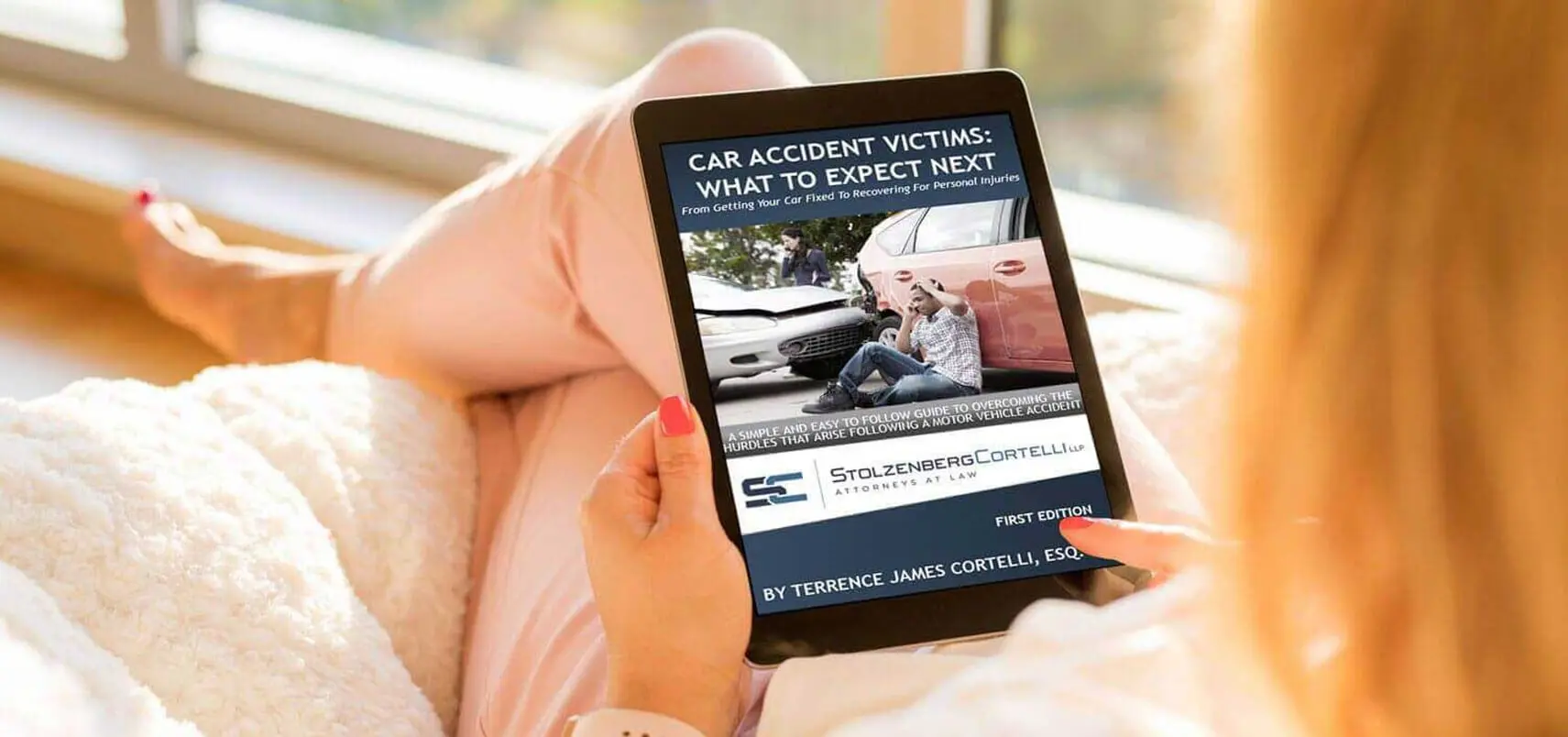
February 7, 2022 | Car Accidents | Premises Liability
We are often asked whether a store or restaurant can be held responsible for failing to provide safe and adequate parking. For instance, sometimes a business doesnt provide adjacent parking but instead asks its customers to park on the opposite side of a busy street. the question then is whether the store should be held liable if a customer is struck crossing the busy street on her way to the store. We believe that New York allows the customer to sue the store. Below is some of our research on the issue.
It is well-settled in New York that liability of an owner or possessor of land is measured by “the single standard of reasonable care under the circumstances.” See Basso v. Miller, 40 N.Y.2d 233, 386 N.Y.S.2d 564 (1976). Where the landowner is conducting a business, the duty is said to include the corollary that the business also owes the duty to provide the public with a safe means of ingress and egress. See Thomassen v. J & K Diner, 152 A.D.2d 421, 549 N.Y.S.2d 416 (2nd Dept. 1989); June v. Zikakis Chevrolet, 199 A.D.2d 907, 606 N.Y.S.2d 390 (3rd Dept. 1993); see also Restatement of Torts § 425.
Indeed, it has been said that “When one assembles a crowd or a large number of people upon his property for purposes of financial gain to himself he assumes the responsibility of ‘using all reasonable care to protect the individuals from injury from causes reasonably to be anticipated’” and that “obligation of the proprietor includes particularly the duty to provide safe arrangements for the entrance and departure of people. Schubart v. Hotel Astor, 168 Misc. 431, 435, 5 N.Y.S.2d 203, 207 (Sup. Ct. 1938) aff’d, 255 A.D. 1012, 8 N.Y.S.2d 567 (App. Div. 1938) aff’d, 281 N.Y. 597, 22 N.E.2d 167 (1939). This includes ensuring safe revolving doors, aisles, exterior staircases and exit ways. See id.
This duty to ensure safe passage however is not limited to one’s property but extends beyond it and seeks to protect users against all foreseeable harm. See McKeever v New York Tel. Co., 254 App Div 872, 5 NYS2d 6, aff’d, 279 NY 651, 18 NE2d 44; Gayden v Rochester, 148 AD2d 975, 539 NYS2d 211; Licato v Eastgate, 118 AD2d 904, 499 NYS2d 472; see also Drake v State, 97 Misc2d 1015, 416 NYS2d 734, aff’d, 75 AD2d 1016, 432 NYS2d 676 (state held liable for failure to abate danger to travelers from armed persons present on state land adjoining public highway); N.Y. Pattern Jury Instr.–Civil 2:90.
Examples of this “long arm” duty are many and diverse. For instance, a property owner will be liable for a slip and fall causing injuries because of ice that accumulated on a public sidewalk in front of the owner’s property. See Buchaca v Colgate Inn, 296 NY 790, 71 NE2d 471 (failure to keep inn sidewalk free of ice). Similarly, an owner of a playground has been held liable where one of the users of the playground passes through a hole in the park’s fence and is injured on the adjacent property which is a railroad depot controlled by another entity. See Scurti v. City of New York, 40 N.Y.2d 433, 445, 387 N.Y.S.2d 55, 354 N.E.2d 794 (Breitel, Ch. J., concurring in part and dissenting in part).
And an innkeeper was under a duty to take reasonable care to discover the actual condition of the land under water in the area wherein its guests were invited and permitted to bathe but not owned by the inn, and either to make the area safe or warn them of its dangerous condition. See Butts v. Kouwenhoven, 272 A.D. 1019, 272 A.D. 1071, 73 N.Y.S.2d 498. Finally, a transportation contractor owes its customer the duty to ensure safe passage after alighting therefrom. See Barravecchio v. New York City Transit Auth., 83 A.D.3d 630, 631, 922 N.Y.S.2d 96, 98 (2011) (a taxi or public bus company owes a duty to an alighting passenger to stop at a place where the passenger may safely disembark and leave the area.
That, here, the injury occurred on a public highway is of no moment. For instance, in Ferrer v. Harris, 55 N.Y.2d 285, 449 N.Y.S.2d 162 (1982), plaintiffs, two young girls under the age of eight years old, were struck by an automobile as they crossed a Bronx Street between two parked cars. The girls were trying to cross the street to reach a “Mister Softee” motor van. The girls successfully sued the Mr. Softee van. The Court rejected the defendant’s contention that it owed no duty to the girls who were injured by a nonparty automobile and occurred on a public highway. The Court pointed to the well held rule that a business proprietor owes the customer safe ingress and egress in finding for plaintiffs.
Other states agree. For instance, in Warrington v. Bird, 499 A.2d 1026 (N.J. Super. Ct. 1985), the plaintiffs were injured by a passing motorist as they crossed a public road. At the time of the accident, the plaintiffs were returning to a parking lot provided by the defendant restaurant after dining at the restaurant, which was located across the road from the parking lot. The Superior Court concluded that under these circumstances, the defendant owed pedestrians such as the plaintiffs a legal duty to ensure safe passage across the highway. Id. at 1030.
It held that “when a business provides a parking lot across the roadway from its establishment, the duty of the proprietor to exercise reasonable care for the safety of its patrons extends to the conditions obtaining at the parking lot and requires that the patrons not be subjected to an unreasonable risk of harm in traversing the expected route between the two locations.” Id. Similarly, in Mulraney v. Auletto’s Catering, 293 N.J.Super. 315, 680 A.2d 793 (App. Div. 1996), the Court, citing other precedent in that state, held that a business proprietor’s duty of care extends beyond protecting customers from dangerous physical conditions on their property to providing reasonably safe passage across an adjacent highway.
In short, a proprietor’s duty to protect its customer is not limited to property boundaries but extends beyond that – it includes the obligation to protect against all foreseeable harms over which the proprietor, with a modicum of reasonable effort, has some ability to prevent. Ferrer v. Harris and its progeny makes that clear. Indeed, there exists “[t]he obligation of those who collect numbers of people in one place, for gain and profit, to be vigilant in their efforts to protect such people” (Schubart, supra, 168 Misc. at 435, 5 N.Y.S.2d at 207). Thus, a store owner owes its customers safe passage — even across dangerous public highways.
StolzenbergCortelli LLP


305 Old Tarrytown Rd.
White Plains, NY
10603
99 Main Street
Nyack, NY
10960
26 Court Street
Brooklyn, NY
11242
55 Old Turnpike Rd
#502
Nanuet, NY
10954